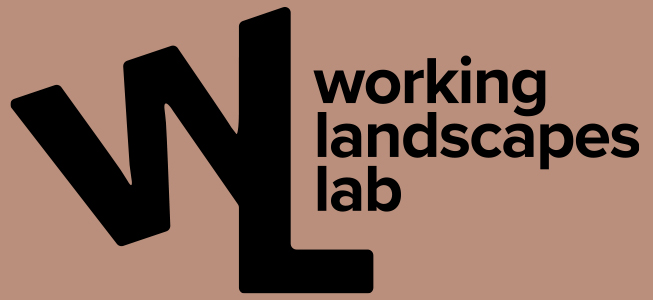Information
Research
We examine opportunities for design to enhance the social and ecological performance of conventional working landscapes.Teaching
In both graduate and undergraduate coursework, we emphasize a synthetic, multi-scale approach to the design and representation of landscape systems.Agri(C)ultural Design
Design is fundamentally about people. Whether through public installations or participatory workshops, our work explores ways for design to help communities better understand and engage with agricultural landscapes.Conventional agriculture comprises the largest anthropogenic land use in the world, with crop, livestock and aquaculture production systems impacting ecologies across multiple scales. Nevertheless these “working landscapes” have been largely absent from landscape architectural discourse – with designers and planners primarily engaging with food production vis-a-vis fringe systems like urban farming. The Working Landscapes Lab explores opportunities for landscape architecture to reframe and reshape conventional working landscapes. The Lab has explored a variety of different productive spaces and systems, from catfish farming in the Mississippi Delta to agricultural drainage networks in the Corn Belt. The resulting research outputs have included a range of visual works for exhibition, essays for edited books and scholarly journals and grant funding for transdisciplinary scholarship. While the thematic focus of our work may push the boundaries of landscape architecture, our research methods are foundational to the discipline. Through representation, design speculation and interdisciplinary collaboration, we seek to expand the working methods of landscape architecture to include spaces of agricultural production.

The Lab was founded by Forbes Lipschitz, an Associate Professor and the Graduate Chair of Landscape Architecture at the Knowlton School. As a faculty affiliate for the Initiative in Food and AgriCultural Transformation, her current research investigates the potential of design to reframe and reshape conventional working landscapes. Through public installations and participatory workshops, she explores ways for design to help communities better understand and engage with agricultural systems. Her research has been published nationally and internationally and her creative work has been featured in Landscape Architecture Magazine, Metropolis Magazine, and Smithsonian Magazine. She has been awarded funding from the Foundation for Food and Agricultural Research, the Graham Foundation for Fine Arts and the Van Alen Institute.
Find Forbes’ CV here.

